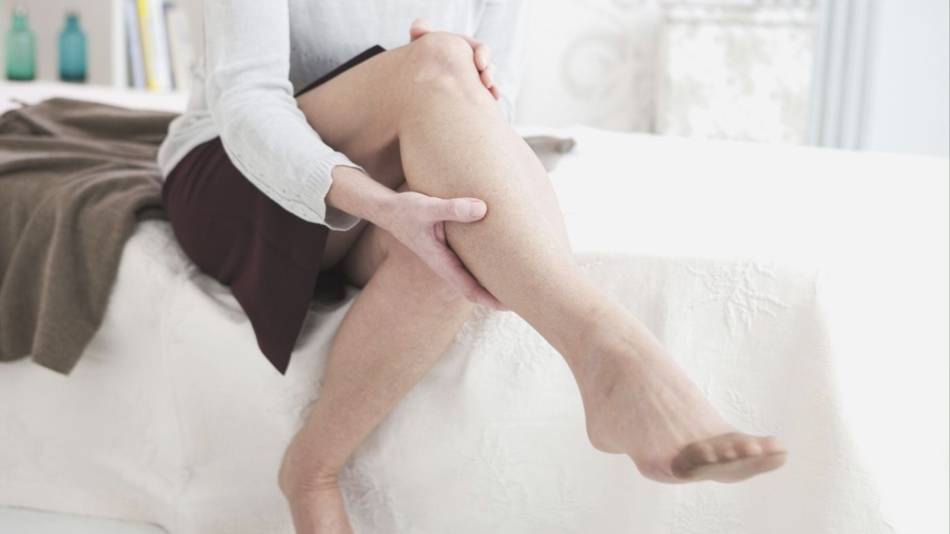
Answer:
Varicose veins are swollen, bluish veins that are visible just under the skin, common in the legs and also manifesting as hemorrhoids in the anus and lower rectum. They are caused by weak or damaged vein walls and valves. These can occur due to heredity and aging, as well as from high blood pressure, periods of sitting or standing for long periods of time, weight gain, and pregnancy. For some people, the appearance of varicose veins may be of cosmetic concern only, or cause discomfort as hemorrhoids, but for others, they may result from venous insufficiency (CVI) or other circulatory disease, which may affect both superficial and deeper veins, and cause symptoms such as leg swelling and nighttime leg cramps (NIH 2023).
There is some evidence that certain supplements may reduce symptoms of chronic venous insufficiency or the appearance of varicose veins, but none of these are strongly recommend by vascular experts in the U.S., and there are safety concerns with some of these supplements. Continue reading below for details.
Supplements that may help
Butcher’s broom
Practice guidelines published by several associations of vascular experts note that there is no strong evidence that any supplement helps with varicose veins.
However, the guidelines weakly recommend butcher's broom extract, based on moderate quality evidence that it may have a small benefit for treating vein-related pain, leg heaviness, and sensation of swelling in adults with symptomatic chronic venous disease and varicose veins who are unable to receive, or who have persistent symptoms after other intervention (Gloviczki, J Vasc Surg Venous Lymphat Disord 2024).
Supplements of butcher's broom (Ruscus aculeatus) are typically extracts of its root and/or rhizome, which contain compounds that may have diuretic and anti-inflammatory effects (Masullo, Planta Med 2016), as well as vasoconstrictive effects, possibly by acting on adrenergic receptors (Sadarmin, JEM J Emerg Med 2013).
A study in Germany among 110 women with CVI (grade 1 or 2) found that taking 36 to 37.5 mg of a dry butcher's broom rhizome extract (concentration 15-20:1) twice daily for 12 weeks modestly reduced leg swelling, heaviness, and fatigue compared to placebo (Vanscheidt, Arzneimittelforschung 2002). A review that included 20 placebo-controlled, randomized controlled trials investigating the effects of a specific supplement (Cyclo 3 Fort, by VEV ICU) containing butcher's broom extract combined with other ingredients concluded that taking 1 to 3 capsules of Cyclo 3 Fort daily for up to three months reduced leg swelling, heaviness, pain and itching compared to placebo. Each capsule contained 150 mg of butcher's broom root extract (not standardized to any compound), 150 mg of hesperidin (also known to be helpful for CVI), and 100 mg of vitamin C (which is needed to make collagen and connective tissues) (Boyle, Int Angiol 2003). [Note: This same product has also shown some possible benefit for managing hemorrhoids, although the evidence is limited. Taking six capsules of Cyclo 3 Fort daily for 3 days, then four capsules daily for 4 days, improved hemorrhoid symptoms such as pain, rectal bleeding, and inflammation compared to baseline in one study, with 68% of the participants rating the treatment as "good" or "excellent." However, the study did not include a placebo group, which is needed to prove a benefit (Bennani, Phlebologie 1999).]
Although butcher’s broom appears to be generally well-tolerated, be aware that, taken orally, butcher's broom extract may have gastrointestinal side effects including upset stomach, vomiting, and diarrhea, and one case of hepatitis has been reported with the use of Cyclo 3 Fort (described above) (Sgro, J Hepatol 1995).
Butcher's broom may interact with metformin, possibly due to its adrenergic-stimulating properties (although this mechanism is speculative). This was reported in a 39-year-old woman with diabetes taking metformin who developed diabetic ketoacidosis five days after she began taking butcher's broom extract (dosage not reported) (Sadarmin, JEM J Emerg Med 2013). Other drugs that affect or are affected by alpha-adrenoceptors include doxazosin (Cardura), silodosin (Rapaflo), and tamsulosin (Flomax).
Pycnogenol (pine bark extract)
Pycnogenol is a branded extract from the bark of French maritime pine promoted for various uses due to its antioxidant and anti-inflammatory properties, which are thought to derive, in part from oligomeric proanthocyanidin complexes (OPCs) found in pine bark. There is some preliminary evidence that Pycnogenol may reduce the appearance of varicose veins or improve symptoms of veinous insufficiency, but keep in mind that most of these studies have been company-funded.
A small study in adults with varicose veins and chronic venous insufficiency found that daily supplementation with 150 mg of Pycnogenol for at least 3 months prior to surgery to remove varicose veins significantly reduced the stretching and dilation of the veins when they were tested after removal, compared to veins from adults who did not take the supplement (Belcaro, Int J Angiol 2014). A dose of 100 mg of Pycnogenol per day for 6 months was also reported to reduce the number of varicose veins caused by pregnancy compared to treatment with compression stockings; however, this study was not blinded (the women chose which treatment they wanted to receive) and did not include a placebo — making these results less reliable (Belcaro, Int J Angiol 2017).
A daily dose of between 150 and 300 mg of Pycnogenol may reduce leg swelling and pain in people with chronic venous insufficiency, a condition which causes blood to pool in the legs. One clinical study of people with CVI found that 100 mg of Pycnogenol taken three times per day for one month significantly reduced swelling, heaviness and pain in the legs compared to placebo (Arcangeli, Fitoterapia 2000). After two months of treatment, almost 60% of the people taking Pycnogenol had no leg swelling or pain; however, there was no change in venous blood flow.
Taking 300 mg of Pycnogenol (as six 50-mg tablets per day) for four days then 150 mg (three tablets) per day for three days, alone or along with a topical Pycnogenol cream (0.5%), was shown to reduce acute symptoms (including bleeding) of hemorrhoids (a type of varicose vein) compared to compared to placebo, with the combination of Pycnogenol tablets and cream being more effective than oral Pycnogenol supplementation alone (Belcaro, Phytother Res 2010).
For more information, see our article about the safety and potential health benefits of Pycnogenol and other pine bark extracts.
(Bilberry supplements, which contain compounds similar to the OPCs found in pine bark extract which are thought to be responsible for some of its effects, have been suggested to treat varicose veins, but currently there is little evidence to support this use.)
Grape seed extract
Several small studies suggest that grape seed extract can help reduce symptoms of venous insufficiency (causing leg swelling), as well as swelling after surgery (such as arm swelling after breast cancer surgery), but larger studies are needed to confirm these benefits (Martinez-Zapata, Cochrane Database Syst Rev 2016; Baruch, Ann Chir Plast Esthet 1984).
Horse chestnut extract
Horse chestnut exact contains an anti-inflammatory compound (aescin or escin) that has shown some benefit for reducing leg swelling symptoms of chronic venous insufficiency, possibly by inhibiting certain enzymes thought to play a role in blood cell and fluid accumulation.
A 12-week study in Germany among 240 men and women with chronic venous insufficiency found that taking 1 capsule of horse chestnut extract containing 50 mg of aescin, twice daily, was as effective in reducing edema (swelling) as treatment with compression stockings (class II stockings worn for 12 weeks, in addition to treatment with a diuretic in the first week to ensure a proper fit) compared to placebo. Lower leg volume decreased by 43.8 mL and 46.7 mL, among those who took horse chestnut extract or wore compression stockings, with no significant difference between groups, compared to a slight increase (9.8 mL) in lower leg volume among those who took a placebo (Diehm, Lancet 1996). A review of this study and 16 other clinical trials (10 of which were placebo-controlled) concluded that taking horse chestnut extract (typically standardized to 20% aescin, and providing a daily dose of about 100 to 150 mg aescin per day), for up to 16 weeks may reduce leg swelling, leg pain, and itchiness, in people with chronic venous insufficiency (Pittler, Cochrane Database Syst Rev 2012).
The compound aescin alone (rather than as part of horse chestnut extract) appears to be beneficial for people with hemorrhoids. A study among 80 adults with acute, symptomatic hemorrhoids showed that 40 mg of aescin (equivalent to the amount in about 200 mg of horse chestnut extract) taken three times daily for up to 2 months reduced symptoms in 81% of people compared to 11% of those receiving placebo. A greater percentage of those taking aescin also showed reduced bleeding (95% vs 62%) and reduced swelling (87% vs 38%) based on endoscopic examination compared to placebo (Sirtori, Pharmacol Res 2001).
Side effects from horse chestnut extract, including gastrointestinal complaints, dizziness, nausea, headache, and itchiness, reported in the studies above were general mild and infrequent. However, be aware that some people may be allergic to horse chestnut, and horse chestnut extracts may interact with certain medications. Also, never consume whole or raw horse chestnuts (as opposed to extracts), or bark, flowers or leaves from the horse chestnut tree, as these contain a toxic compound that has serious adverse effects and, in some cases, can be fatal. For more information, see our article about the side effects and safety of horse chestnut.
Gotu kola
There is preliminary evidence that gotu kola (Centella asiatica) can help reduce symptoms of venous insufficiency, but higher quality research is needed to prove a benefit. It’s not known if gotu kola reduces the appearance of varicose veins.
A review of eight clinical trials (seven of which were placebo-controlled) lasting from one to three months concluded that 60 to 120 mg of gotu kola per day (taken in divided doses, two to three times daily), reduced leg pain, heaviness, and swelling in people with chronic venous insufficiency, venous hypertension, and related conditions, compared to placebo. Only one study seemed to include the appearance of varicose veins as an outcome measure, but it’s not clear there was any benefit (Nyuk, Evid Based Complement Alternat Med 2013). However, due to the low quality and/or limitations of some of these studies, such as a lack of blinding or quantifiable data for certain measures, the researchers noted that higher quality studies are needed to prove a benefit.
In clinical studies, daily doses of gotu kola of up 750 mg of extract or 12,000 mg of gotu kola powder taken for up to six months have been well tolerated, with occasional gastrointestinal symptoms such as nausea and stomach pain reported (Puttarak, Sci Rep 2017; Brinkhaus, Phytomedicine 2000). However, liver damage has been reported in some people (Jorge, Rev Esp Enferm Dig 2005), and the safety of taking gotu kola while pregnant or nursing has not been established. Also, be aware that gotu kola may have a sedative effect, and allergic skin reactions have been reported in some individuals when gotu kola is applied topically (such as in creams) (Brinkhaus, Phytomedicine 2000).
Citrus bioflavonoids
Citrus bioflavonoids are compounds such as hesperidin, quercetin, and rutin, which are found in lemons, oranges, and other citrus fruit. As discussed below, there is some preliminary evidence that citrus flavonoids may reduce symptoms of chronic venous insufficiency, but more research is needed.
Hesperidin, in combination with diosmin, has been shown to reduce limb swelling and improve quality of life compared to placebo in people with chronic venous insufficiency (Belczak, Phlebology 2014). However, the combination may be less effective than other supplements such as oxerutins (which are also used to improve blood flow) or Pycnogenol (Cesarone, Clin Appl Thromb Hemostat 2006; Cesarone, Angiology 2006), and it is uncertain whether the benefit, if any, is due to diosmin, hesperidin or the combination.
Also, be aware that citrus bioflavonoids may cause nausea or vomiting in some people, and may interact with benzodiazepine drugs such as diazepam (Valium), alprazolam (Xanax), lorazepam (Ativan).
Lifestyle interventions that may help
Lifestyle measures that may help to reduce the appearance or worsening of varicose veins include use of compression stockings, staying physically active, maintaining a healthy weight, and avoiding wearing high heels or standing for long periods of time (NIH 2023).
Join today to unlock all member benefits including full access to all CL Answers and over 1,400 reviews.
Join NowAlready a member? Sign In Here.
Join now at www.consumerlab.com/join/

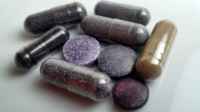
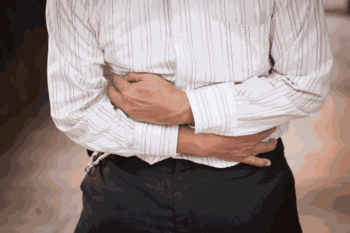
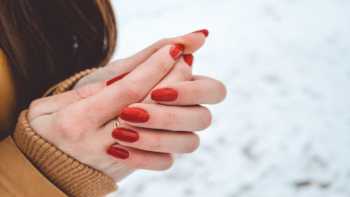
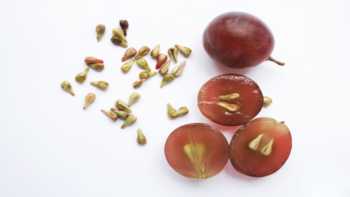
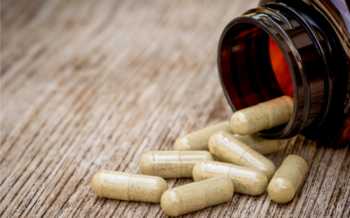






William22786
May 15, 2025I found that taking hesperidin combined with diosmin in a single capsule to clear up my venous insufficiency caused by diabetic leg syndrome and also in combination with vitamin-E eliminated my hemorrhoids. Supplementing with potassium (KCL) 5-Meq (Rx) extended release per day, has also helped to reduce my leg swelling. I do bench service work so I spend a lot of time seated and those items I listed above have been amazing for my health at 69 years of age. My BP is also much lower at 122/70.
Reply to this post…
Julie22675
May 01, 2025I've taken horse chestnut consistently about ten years. I started taking it while pregnant when my midwife recommended it for my terrible hemorrhoids (hemorrhoids are simply rectal varicose veins). It completely cleared up the hemorrhoids so I have continued taking it ever since. I had hemorrhoids since I was 14 or 15 and after starting horse chestnut, I have only had one case of hemorrhoids and that was during a period of about 2 months when I ran out and hadn't bothered to get more yet. I went back on it as soon as the problem recurred and it promptly went away again, and I've had no issue since. I do have some spider veins on my ankles, but I had them years before I started taking the horse chestnut. I haven't developed any additional varicose veins on my legs even though my mother has them pretty bad. Maybe its coincidence, but I don't realy think that is the case considering the clear effects it has had for me elsewhere.
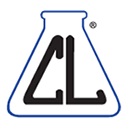 ConsumerLab.com
ConsumerLab.com
May 05, 2025Please be aware of the potential adverse effects of horse chestnut, as noted above.
Reply to this post…
Stan22560
April 19, 2025I am an elderly person whose parents suffered from severe varicose veins. I also had issues, including inching and very easy bruising of my ankles, which resulted in ankle wounds that were very very slow to heal. I had been taking citrus bioflavonoids for many decads, but I did not find substantial relief until I began taking 1200mg of L-citrulline daily (a precursor of arginine and nitric oxide) and one tablet daily of a product called “Leg Veins” (no financial connection). Im the years afterwards also began taking all the other supplements mentioned(except for gotu kola), and now I no longer have any such problems. My blood pressure and weight are both normal and I take no prescription or over the counter meds, so that interactions are not a worry. I also consume a large jar of mashed fermented beets weekly, as well as daily smoothies with lots of fiber rich seeds, stevia, cocoa and whey protein. Amazingly I’m still around. For now.
Reply to this post…
JR22556
April 19, 2025I used to have varicose veins, starting in my early 50s, but I started taking 500 mg. of vitamin C about that time, divided over 2 doses with meals. I haven't had a sign of VV since, and I'm now 81 y.o.
Reply to this post…
TxZ
February 10, 2025In my experience, I wasn't impressed with Pycnogenol and Gotu Kola neither by themselves nor together. On the other hand, I found beet root to work really well and its cheaper.
kathleen22419
April 01, 2025How does beet root come?
 ConsumerLab.com
ConsumerLab.com
April 07, 2025See our article about beetroot juice and supplements https://www.consumerlab.com/answers/can-beetroot-juice-or-supplements-help-lower-my-blood-pressure/beetroot-juice/.
GMSEE
July 17, 2025Thank you!!
Reply to this post…
Sam**99
August 29, 2023I have started taking pine bark extract standardized 3X a day. I have been having issues for months after taking metoprolol with my ankles swelling. I also have RLS. After taking the pine bark, I could slowly feel the swelling going down. I still have the RLS which I would love to know anyone who has a successful treatment for it. My iron levels tested were a bit lower so I take an iron supplement 2X week with Vitamin C. I also supplement with thiamine (benfotiamine.)
 ConsumerLab.com
ConsumerLab.com
March 11, 2024Please see our article about supplements and restless legs syndrome https://www.consumerlab.com/answers/do-any-supplements-help-for-restless-legs-syndrome/supplements-restless-legs-syndrome/.
Camilla19125
March 27, 2024I've had RLS for most of my life and magnesium at night definitely helps me.
Reply to this post…
David5663
July 24, 2023butchers broom, troxerutins, gotu kola and pycnogenol have all worked well for me ( venous insufficiency and postural hypotension); horse chestnut caused a lot of problems.
 ConsumerLab.com
ConsumerLab.com
July 26, 2023Please see our article about horse chesnut for information about potential adverse effects and drug interactions with horse chesnut https://www.consumerlab.com/answers/can-horse-chestnut-cause-stomach-irritation/horse-chestnut-side-effects/.
Reply to this post…
Susan5656
December 09, 2015I have had positive experience with both gotu kola and with Vitamin C bioflavinoids for signs of venous insufficiency.
Patrick5657
August 22, 2019I have used nattokinase with good results. It aim at improving circulation, acting like a proteolytic enzyme and clearing arteries and veins of dead tissues, fibrins, or pieces of proteins jamming the veins and arteries. It will act within few weeks/months depending on a number of factors (doses, etc..) but you can definitely measure beneficial changes by measuring blood pressure over time.
 ConsumerLab.com
ConsumerLab.com
August 23, 2019Hi Patrick - Thank you for sharing this. Please see the Nattokinase Supplements Review for more about the evidence for nattokinase, and our tests of products https://www.consumerlab.com/reviews/nattokinase-supplement-review/nattokinase/.
Reply to this post…